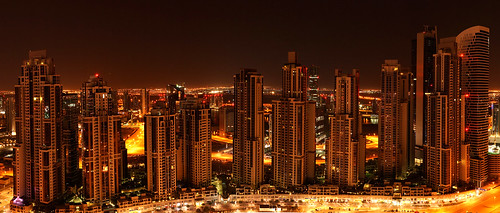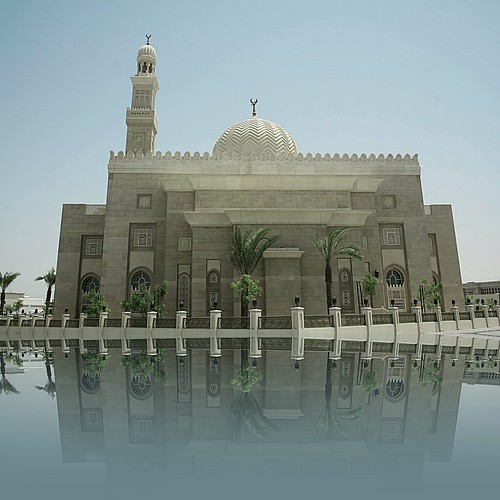Government officials
are required to resolve structural issues the
Egyptian economy is facing as the
Economic Summit is around the corner. In order for the Egyptian economy to
modify and develop its structure, the government is called to enhance investment
and stabilize tax policies.
According to the
present tax structure, tax rates have soared beyond 40% due to a 5% increase in
rate from 20% to 25%. Besides the increase in rate, companies and individuals
are subject to an additional 5% surtax on those holding more than EGP 1m. Furthermore, the government
has implemented a new 10% tax on dividends. Financial and investor
professionals express their concern, believing that the present tax regime in
Egypt does not attract investors therefore hindering the country’s investment
sector.
Assessment of current Egyptian Tax Regime
An effective and efficient tax regime is made
up of four parties including the tax policy, tax administration, the tax
legislation as well as the taxpayer. Firstly, to improve the Egyptian tax
regime, the government must create a comprehensive, long-term steady tax policy
that will allow potential investors to make their investment choices founded on
transparency and sureness.
It is also suggested that the Egyptian
government prepares a five-year tax and financial policy in order to present at
the Economic Summit. The government needs to make sure the five-year tax and
financial policy will not alter depending on government officials or cabinet.
It is crucial that the policy is and will remain stable and developed based on
cost benefit analysis to successfully be integrated in to the economy.
Secondly, the government should rethink its tax
legislation. A new modified income tax law needs to be issued, which rate and
regulations are consistent with that of other countries internationally. The
new income tax legislation needs to be outlined clearly and in detail.
Additionally, Egypt needs to reevaluate its high tax rates in order to become
more competitive and ultimately attract more investors. This is because other
countries tax rates are generally lower.
International tax
systems
All tax regimes are
implemented to enhance three factors within an economy: economic, social and
fiscal policies. The fiscal or financial policy aims to generate tax revenues.
The economic policy aims to enhance and attract investment whereas the social
policy targets to achieve justice and just income distribution in the society.
In regards to Egypt,
at present the government is focusing on the fiscal aspect of its tax regime in
order to resolve its government budget deficit quickly, although it should
focus on revising its high rates and policies.
Companies and Individuals
whose income surpasses EGP 1m are subject to an additional 5% tax
In the occasion where
all investors were informed that the additional 5% tax would no longer be
imposed after a three year period, as prescribed by law. However, after three
years have gone by, the tax is still imposed. Therefore, investors realize that
the government’s intention was to increase the rate of tax in an indirectly.
Value-added Tax Law
Egypt needs to
introduce a new VAT legislation in order to increase its tax revenues. Experts
hold the view that the Egyptian government needs to quickly introduce a new VAT
law while allowing time to taxpayers to adjust and adapt to the new tax regime.
If a transition period were not allowed, the new VAT legislation would not be
implemented effectively. For instance, the introduction of a new VAT means that
companies and businesses will need time to amend and alter their invoice
systems and accounts.
Investors and Law
modifications
Taking in to
consideration the present financial environment in Egypt, investors feel the
Egyptian economy is unstable because of the repetitive modifications made to
the legislation. The legislation needs to be consistent and steady. For
instance, the law articles concerning tax exemptions and reevaluation profit
are not consistent.
At present, the
legislation does not benefit Egypt companies concerning taxes. Additionally, a
holding company is subject to double taxation when it holds less than 25% of
capital and voting rights. This fact discourages potential investors from
investing in the Egyptian market, taking their investments elsewhere.
Modified Tax
Legislation
Experts believe new
tax legislation needs to be implemented in Egypt, by revising two segments of
the already established law. They believe the new law should unify law
procedures as well as all the procedures involved in sales and income, to
reduce the present procedures and evade tax mistakes from being made.
Government’s
Financial Measures
Egypt has been
struggling with political and economic difficulties since the Revolution on 25
January. Consequently, the country’s economic volatility, low foreign
investment inflow and less tourism has negatively influenced its financial
state. Egypt has showed some progress since last June, in terms of its
political and economic instability, which is mainly attributed to the new
president who came in to office over the summer as well as the $12bn Arab aid it received. Nonetheless, Egypt remains an instable market
due to the terrorist attacks, which influence the economy by discouraging
potential investments.
On a positive note, the economy seems to be
heading on the right track after several positive changes. The government
firstly made alterations within the energy industry and decreased the energy
subsidy. EGP 100bn in total was used to subsidize oil products during the
2014-2015 financial years, which is EGP 30bn lower than 2013-2014. It is also
anticipated that during 2015 the economy will benefit significantly from
several projects, which will be undertaken such as the construction of more
than 3000 kilometers of road networks, the Suez Canal axis as well as the land
reclamation project.
Economic Growth
During 2015, the
economy may strengthen marking a 4% growth rate under the condition the
government continues to make economic, financial and tax alterations. Experts
are hopeful the country’s GDP will rise to 5% during the current financial
year. In order for an economy to prosper it must maintain its growth rate. The
previous year’s GDP was marked at 2.2% I contrast to 2012-2013 GDP, which stood
at 2.1%. Growth rates were marked at 6.8% and 5.7% during the first and second
financial quarters in 2014-2015 respectively, which is a good indicator of growth.
Although Egypt has
marked an increase in its GDP, it must make certain that it is equally
distributed among all classes of society. In the past, its GDP reached 7% but
sue to imbalance of distribution only a tiny section of society benefited.
International trends
in growth rates
The question in hand
is whether economic growth rates may be attained without taking into account
the equal distribution of this growth. In occasions where increased economic
growth rates were not distributed equally, only a tiny section of society
benefited from the increased economic growth.
When an economy
grows, unemployment rates decline therefore inflation also drops investment
inflows surge up and obviously, the government’s budget deficits decrease. At
present, the Egyptian government aims to decrease its state budget deficit. It
hopes that within the following three years the budget deficit will drop to 8%
of the country’s GDP.
Government Administrative Reforms
At present more than
six million workers are engaged in the public sector of which the majority is
temporarily employed. In time, all these employees will be kept on permanently,
which is one of the administrative reforms the government intends to implement. Secondly, altering and modifying the present
wage system is also a matter the government needs to address to get rid of
corruption, injustice and discrepancies within the public sector.
Furthermore, the
administrative alterations made by the government will lead to less inflation
regarding the managing and income costs. The government spends more than one
fourth of its government spending. Although public employment has increased,
quality services are not offered. Experts believe that the public sector may
offer better quality of services with less number of employees.
In addition, the
Egyptian government also needs to consider creating a resourceful and
proficient system for its employees. For instance, the state may set up early
retirement funds, offering employees the opportunity to leave work earlier than
intended and be compensated. The government may also promote the private sector
so as more job opportunities open for workers and decrease the number of
employees in the public sector.
Single-Window System
The government
discussed a single-window system approach extensively and introduced the system
successfully. The purpose of the system is to make the work of investors’ much
easier by reduce both bureaucratic and administrative procedures. The system
practiced at present is quite successful and advanced, similar to the system
used in Dubai. Therefore, the process of setting up a company will no longer
time consuming since everything will be done electronically but also the nearly
80 regulatory units an investor had to go through will no longer exist.
The new system will
benefit the government largely since it is anticipated foreign investments will
double. During the first quarter of the fiscal year, Egypt’s foreign
investments reached $1.8bn,
while during the second quarter investments marked an increase climbing to
$2bn. Increased direct foreign investments indicate the economy is steadily
recovering and on the right path. Furthermore, the introduction of the
single-window system will enhance the country’s rankings within business
indicator surveys, thus attracting even more businesses and investments.
Single-Window System
vs. Corruption
By setting up a
single-window system, both bribery and corruption will decrease significantly.
Some consider that ineffectiveness and incompetence as a type of corruption
which will also fade away. The single-window system carries many advantages,
and the greatest of this is that human workers will be replaced by efficient machinery-thus;
corruption, bribes, fraud and incompetence will all diminish.
Government Facilitates Procedures
One of the disadvantages of the Egyptian
legislation is that procedures outlining both financial and commercial
activities are not under one specific law, which does not help when enforcing
the laws by creating uncertainty and confusion. The government should therefore
unify all the laws relating to investment and add to that more incentives in
order to attract more investors.
For or Against
Exemptions
Experts do not agree on
granting exemptions concerning tax to enhance investments. Additionally,
exemptions create distortion within a tax regime. Furthermore, investors do not
regard exemptions as an important reason to invest. Investors tend to seek
legislative, tax regime, security and economic stability as the most important
reasons to invest.






